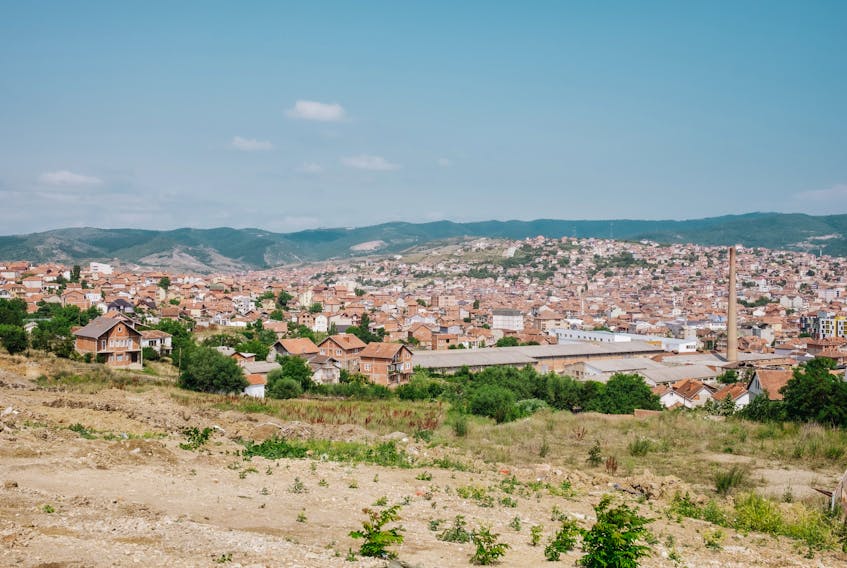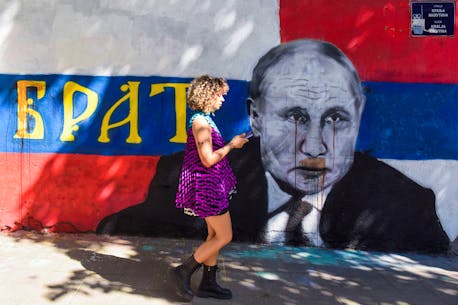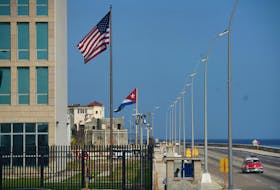Henry Srebrnik, a professor of political science at the University of Prince Edward Island, provided the following opinion article.
It is a point the Kremlin makes obsessively, and President Vladimir Putin reiterated it when UN Secretary-General Antonio Guterres visited Moscow in late April: The “Donetsk and Luhansk People’s Republics” have just as much right to declare their independence as Kosovo did in 2008, Putin stated.
Russia has also invoked this Balkan “precedent” to justify recognising the independence of Abkhazia and South Ossetia — the UN and most states consider them still part of Georgia — in 2008 and annexing Crimea in 2014.
The breakup of the federal communist states of Czechoslovakia, the Soviet Union and Yugoslavia in the 1990s led to a proliferation of newly independent states. Slovakia and the Czech Republic agreed a swift, amicable divorce, but other breakups proved tougher.
Widespread crimes
In Yugoslavia, the war in Bosnia and Herzegovina between 1992 and 1995 was especially brutal, with widespread crimes against humanity. Serbian and Kosovar Albanian forces began to clash in the late 1990s and eventually NATO intervened with a massive 11-week bombing campaign against Serbia that lasted until June 10, 1999. NATO has had a peacekeeping force in Kosovo since then.
Yet even after 23 years, the enmity between Serbs and Kosovar Albanians shows little sign of abating. Air raid sirens were heard in Mitrovica in northern Kosovo on July 31, as Serb protesters blocked roads and shot at local authorities.
It was due to a new rule issued by Kosovo that anyone with a Serbian ID entering the country would need to replace it with an entry/exit permit. Also, ethnic Serbs in Kosovo with Serbian licence plates would be required to change them for Kosovar ones.
Currently, some 50,000 Serbs in northern Kosovo still use licence plates and documents issued by Serbian authorities, refusing to recognize the Pristina government and its institutions. This new dispute threatens to escalate into conflict between the two countries.
Yet even after 23 years, the enmity between Serbs and Kosovar Albanians shows little sign of abating.
Fierce resistance
The government in Kosovo’s capital, Pristina, has been trying for years to assert full institutional control over the ethnic Serb-majority areas of northern Kosovo, but it has faced fierce resistance from residents who still consider their communities part of Serbia. Kosovo’s northern border with Serbia has often been a hub of violence.
Serbia refuses to recognize Kosovo’s independence and insists on protecting them. Serbian President Aleksandar Vucic stated that Serbia has “never been in a more complex and difficult situation” regarding Kosovo “than it is today.” He asked for all sides to keep the peace but warned that “If they don't want to keep the peace, I'm telling you — Serbia will win.”
Serbian politician Vladimir Đukanović wrote on Twitter that “Everything seems to me that Serbia will be forced to begin the denazification of the Balkans. I'd like to be wrong.” Russia had claimed that it wanted to “denazify” Ukraine shortly before launching its invasion of the country in February.
Kosovar Prime Minister Albin Kurti placed the blame on Serbia. He claimed that "aggressive actions" were planned in statements and meetings ahead of time, blaming Vucic and Petar Petkovic, Serbian director of the Office for Kosovo and Metohija, for the unrest.
“The law and order and security bodies of our state are gathering information, monitoring the situation and will act in defense of the law and citizens, our sovereignty and territorial integrity,” said the prime minister.
“The following hours, days and weeks can be challenging and problematic. We are facing the Serbian national-chauvinism that we know well. We will work day and night, we will be at the top of our duties, for you as citizens and for our democratic republic.”

Urging calm
Russia has always been a ally of Serbia, even amid its ongoing invasion of Ukraine. It also does not recognize Kosovo as an independent state. Russian Foreign Ministry spokesperson Maria Zakharova responded to the tensions, saying that Kosovo’s plan to require temporary documents for Serbs “is a step towards their expulsion from Kosovo.”
She added that Russia calls on Pristina “to stop provocations and respect the rights of Serbs in Kosovo.” She also accused the West of wanting to “neutralize” Serbia with “Kosovo Albanian hands.”
The unrest led to NATO stating that it was ready to intervene to stabilize the situation. The EU and U.S. also urged calm. They worry that Russia might escalate tensions in an effort to put pressure on them. Kosovo’s government then announced it would delay the implementation of both the licence plate and identification decisions until September.











